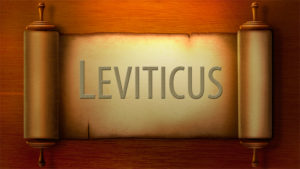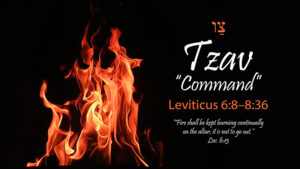 This week’s section of the Bible includes what is called the “Song of Moses”. In this “song”, Moses recounts the past and predicts Israel’s future. In last week’s section we discussed how God spoke directly about Israel’s unfaithfulness and coming dispersion into the nations. Moses repeated the same prediction. It would be almost 800 years before this prophecy concerning dispersion was fulfilled. Today we have the advantage of the insight provided by history and realize that the entire prophecy has been, for the most part, fulfilled.
This week’s section of the Bible includes what is called the “Song of Moses”. In this “song”, Moses recounts the past and predicts Israel’s future. In last week’s section we discussed how God spoke directly about Israel’s unfaithfulness and coming dispersion into the nations. Moses repeated the same prediction. It would be almost 800 years before this prophecy concerning dispersion was fulfilled. Today we have the advantage of the insight provided by history and realize that the entire prophecy has been, for the most part, fulfilled.
In the “Song of Moses” he again foresees the future fate of his people.
- God chose Israel and blessed her.
- In God’s blessing, Israel became “fat” and forgot God who blessed her.
- Israel chased after “other gods”.
- God used a “foolish nation” to discipline His people.
- Ultimately, God will judge the “foolish nation” and vindicate His people.
Again, I will make the point that the judgment of Israel resulting in their dispersion did not signify that God had “cut off” His people. The covenant with Abraham (Genesis 17) which was expanded at Mt. Sinai is eternal. The addendum to the covenant (Deuteronomy 29) spelled out the requirements for Israel to possess their land. Their unfaithfulness would lead to dispersion but this would not mean that the original covenant had been abrogated.
Also, included in this section is the account of the end of the ministry of Moses (at least in this age). God commanded Moses to go up on Mt. Nebo and die there.
“Go up to this mountain of the Abarim, Mount Nebo, which is in the land of Moab opposite Jericho, and look at the land of Canaan, which I am giving to the sons of Israel for a possession. Then die on the mountain where you ascend, and be gathered to your people, as Aaron your brother died on Mount Hor and was gathered to his people.” (Deuteronomy 32:49-50)
Moses was not permitted to enter the land because of the incident at Meribah where Moses failed to treat God as holy, i.e., he did not carry out God’s command as directed and became negative toward God’s people. Joshua ben Nun would be the one who would lead Israel into the land of their inheritance.
One final note concerning this week. We just celebrated the beginning of the seventh month on the Biblical calendar. In the Bible, the number seven denotes “completion”. If we say that the redemption process began in the first month with Passover, then the seventh month should be understood as signifying the completion of that redemption process. The Lord declared that this event should be heralded by the “Tru’ah”, the sounding of the Shofar. The Bible speaks of the “Great Trumpet” and the “Last Trumpet”. We believe that this is what that has been foreshadowed over the years as the “Shofar” has been sounded on the first day of the seventh month.


